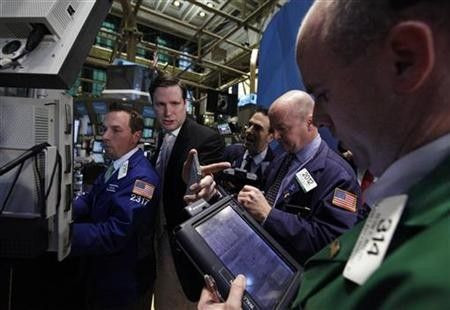U.S. Futures Flat on Europe Concerns

U.S. stock index futures were little changed on Tuesday as persistent concerns over Europe kept investors on edge after four days of market losses.
The ongoing debt crisis in the Eurozone along with worries over how the U.S. will tackle its ballooning debt have sparked steep equity losses. The S&P 500 fell almost two percent on Monday while the Dow turned negative for the year. Last week, the S&P recorded its worst week in two months.
The FTSEurofirst 300 rose as much as 0.7 percent but later pared gains in a volatile session after yields in a Spanish government debt auction rose to their highest in 14 years.
We're getting to a point where there's been so much selling, bargain hunters are taking advantage of an oversold market, said Art Hogan, managing director of Lazard Capital Markets in New York.
Crude oil rebounded more than one percent after dropping on Monday on concerns about how the debt issues would impact economic growth and commodity demand.
After the uniform selloff we saw across pretty much all asset classes yesterday, we're seeing a nudge up, although we're still very concerned about what's going on in Europe, especially the yields on Spanish debt, Hogan said.
Technology shares will be in focus a day after Hewlett-Packard Co. projected fiscal 2012 earnings of at least $4 per share versus estimates of $4.54. The Dow component also reported a steep drop in quarterly profit. The stock fell 2.1 percent to $26.30 in light premarket trading.
S&P 500 futures rose 1.4 points and were slightly above fair value, a formula that evaluates pricing by taking into account interest rates, dividends and time to expiration on the contract. Dow Jones industrial average futures added three points, and Nasdaq 100 futures fell 5.75 points.
The S&P has fallen through a key support level at 1,200. The next technical support was seen at 1,187, representing the 61.8 percent retracement of the 2011 high to low.
We're in a range between about 1,180 and 1,250 on the S&P, and we're unlikely to break out of that until we see real policy changes get implemented in Europe, Hogan said. However, we do have a higher floor for markets than a month ago, and that's positive.
Late Monday, the co-chairs of a special U.S. congressional committee said it had failed to reach a deal on reducing government deficits. There are concerns the stalemate will make it more difficult to pass extensions of stimulative measures like payroll tax cuts, which could hurt the U.S. economy.
While the news was expected, it could further limit market upside. Trading volume is likely to be low this week as global uncertainties and the U.S. Thanksgiving holiday prompt investors to sit on the sidelines.
Economic data due later in the day includes the second estimate of U.S. third-quarter gross domestic product, with economists in a Reuters survey forecasting a 2.5 percent annualized rate of growth, same as the first estimate. The report is due at 8:30 a.m. EST.
Campbell Soup Co. reported first-quarter earnings that beat expectations while sales were slightly below consensus. Medtronic Inc. also reported profit above estimates.
© Copyright Thomson Reuters 2024. All rights reserved.





















